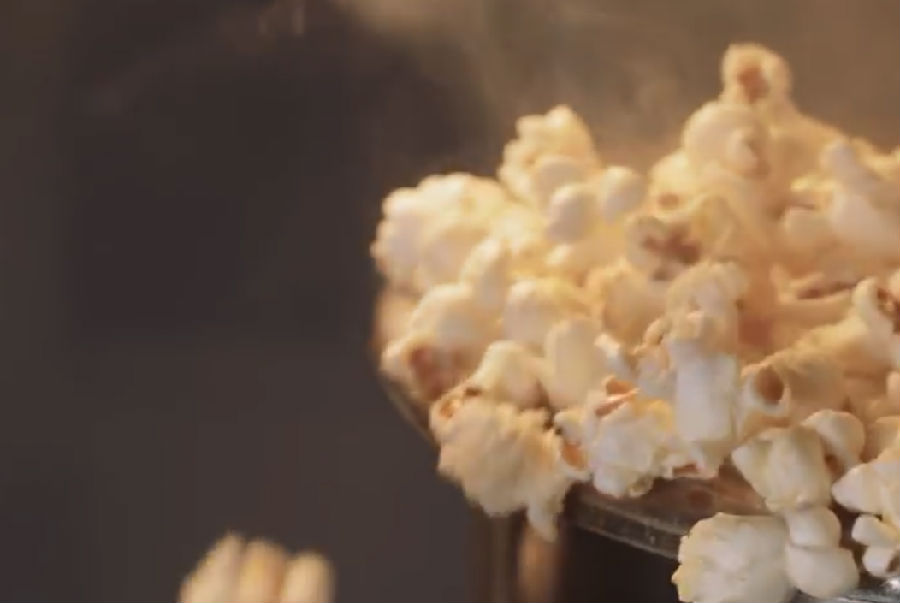(单词翻译:单击)
Popcorn, movies, a match-made in theater heaven.
爆米花和电影是影院天堂的绝配。
But there was a time when this was banned.
然而,过去看电影吃爆米花是被禁止的。
Popcorn has been around for over 8,000 years,
爆米花已经有8000多年的历史了,
but when it hit American streets in the mid-1800s, it took off.
但19世纪中期,爆米花登陆美国后才真正火起来。
It was cheap and could be mass produced on the go, not to mention it smelled amazing.
因为爆米花不仅便宜,而且可以不停加工,更别提它那让人欲罢不能的香味了。
It was the go-to snack at circuses, sporting events and fairs.
那时,无论是看马戏表演、看球赛还是去游乐场,爆米花都是首选零食。
In fact the only place you wouldn't find popcorn was at the movies.
唯一一个找不到爆米花的地方就是电影院。
You see, going to the movies used to be a major event.
大家知道,过去去电影院那可是一件大事。
The only people that went were fancy rich folks because you had to be educated enough to read.
只有讲究的富人才会去,因为只有受过教育的人才能看懂字幕。
Fancy, like there was even a coat check.
有多讲究呢,电影院连大衣寄存处都有。
But there was definitely no concession stand.
不过,那时的电影院都没有零食贩卖处。
There was, however, popcorn street vendors who set up shop outside theaters.
但电影院外面有小贩卖爆米花。
They made a killing selling to waiting theater goers.
这些人就靠着卖爆米花给等着看电影的人发了大财。
Theater goers that started smuggling their popped treats inside. Not cool.
看电影的人也开始把爆米花偷偷带到影院里。一点都不酷好吗。
Early movie theaters kindly asked patrons check their popcorn before entering.
一开始,电影院是善意地提醒顾客们吃完爆米花再进场。
Then, in 1927, films started adding sound, meaning everyone went to the movies.
到了1927年,有声电影出现了,现在,大家都能看懂电影了。
The Great Depression followed making movies a cheap escape.
紧接着,大萧条来了,电影成了廉价的避难所。
Huge crowds plus crunch muffling sound equaled another revenue opportunity for theater owners.
大批涌入的观众加上悉悉邃邃的吃爆米花的声音,影院老板们迎来了新的商机。
By 1945, over half the popcorn consumed in America was being eaten at the movies.
到了1945年,美国消费的爆米花多半都是在看电影的时候吃掉的。
A marriage that has continued ever since.
爆米花和电影的搭配也就此流传下来了。


